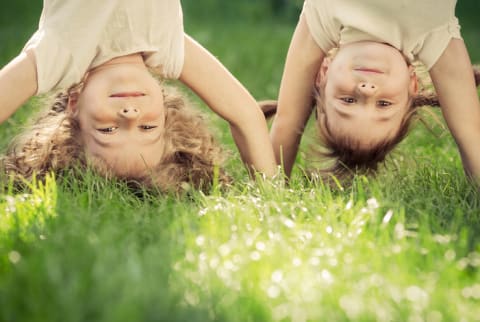Advertisement

Most of us intuitively know that we feel better when we spend time outside.
But sadly, as our lives become more dependent on technology, we are increasingly disconnected from the Earth — and this disconnect could be harming our children more than we think.
Acknowledging the adverse effects on children’s well being, author Richard Louv coined the term “Nature Deficit Disorder." His research has led pediatricians like myself to prescribe time in nature as a way to combat the health ills associated with lack of free outdoor play.
Looking for encouragement to get your kids off the couch this summer? Here are seven research-based reasons to venture into the Great Outdoors:
1. It encourages exercise.
The closer kids are to green spaces, the more likely they are to run around outside: a recent Canadian study found that the physical activity of 11 to 13 year olds rose relative to the amount of tree-filled space in their neighborhoods. Of course, this doesn't mean you're out of luck if you're a city dweller — simply make time for play in a shaded public park.
2. It reduces anxiety.
Children in Maryland and Colorado who played in green schoolyards reported less stress compared to their peers. They also showed an increased sense of competence, as well as ability to form supportive social groups.
3. It improves focus.
One study of kids in Illinois found that even just a twenty-minute walk in the park led to a substantial attention boost. As the researchers note: " 'Doses of nature' might serve as a safe, inexpensive, widely accessible new tool in the tool kit for managing ADHD symptoms."
4. It makes kids smarter.
Researchers found that Barcelona school children with more exposure to outdoor greenery performed better on cognitive testing. The effect was greatest when both home and school environments provided “green” time.
5. It builds a sense of community.
Canadian adolescents living in greener environments reported a stronger sense of "place," or belonging to a healthy community. This finding has important ramifications, as these emotions might also increase kids' engagement and involvement in keeping their neighborhoods safe and healthy.
6. It helps them develop deeper connections with family.
In a survey of 60 American families, participation in camping experiences was found to improve family relationships.
7. It raises their interest in the environment.
Childhood exposure to natural settings is associated with a greater interest in environmental stewardship — and ultimately with pursuing professional careers and adult hobbies connected to nature and the environment.
